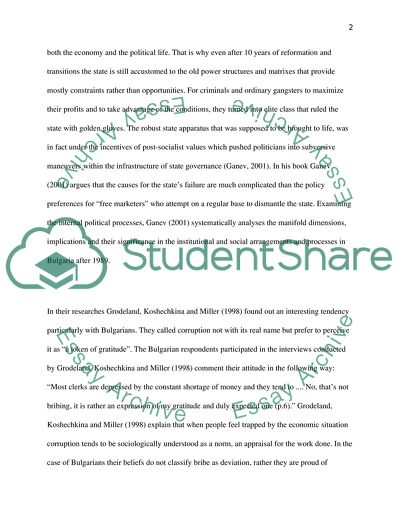Cite this document
(How Corruption Became All-Pervasive in Bulgarian Politics Essay, n.d.)
How Corruption Became All-Pervasive in Bulgarian Politics Essay. https://studentshare.org/politics/1731875-part-of-the-dissertation
How Corruption Became All-Pervasive in Bulgarian Politics Essay. https://studentshare.org/politics/1731875-part-of-the-dissertation
(How Corruption Became All-Pervasive in Bulgarian Politics Essay)
How Corruption Became All-Pervasive in Bulgarian Politics Essay. https://studentshare.org/politics/1731875-part-of-the-dissertation.
How Corruption Became All-Pervasive in Bulgarian Politics Essay. https://studentshare.org/politics/1731875-part-of-the-dissertation.
“How Corruption Became All-Pervasive in Bulgarian Politics Essay”. https://studentshare.org/politics/1731875-part-of-the-dissertation.


